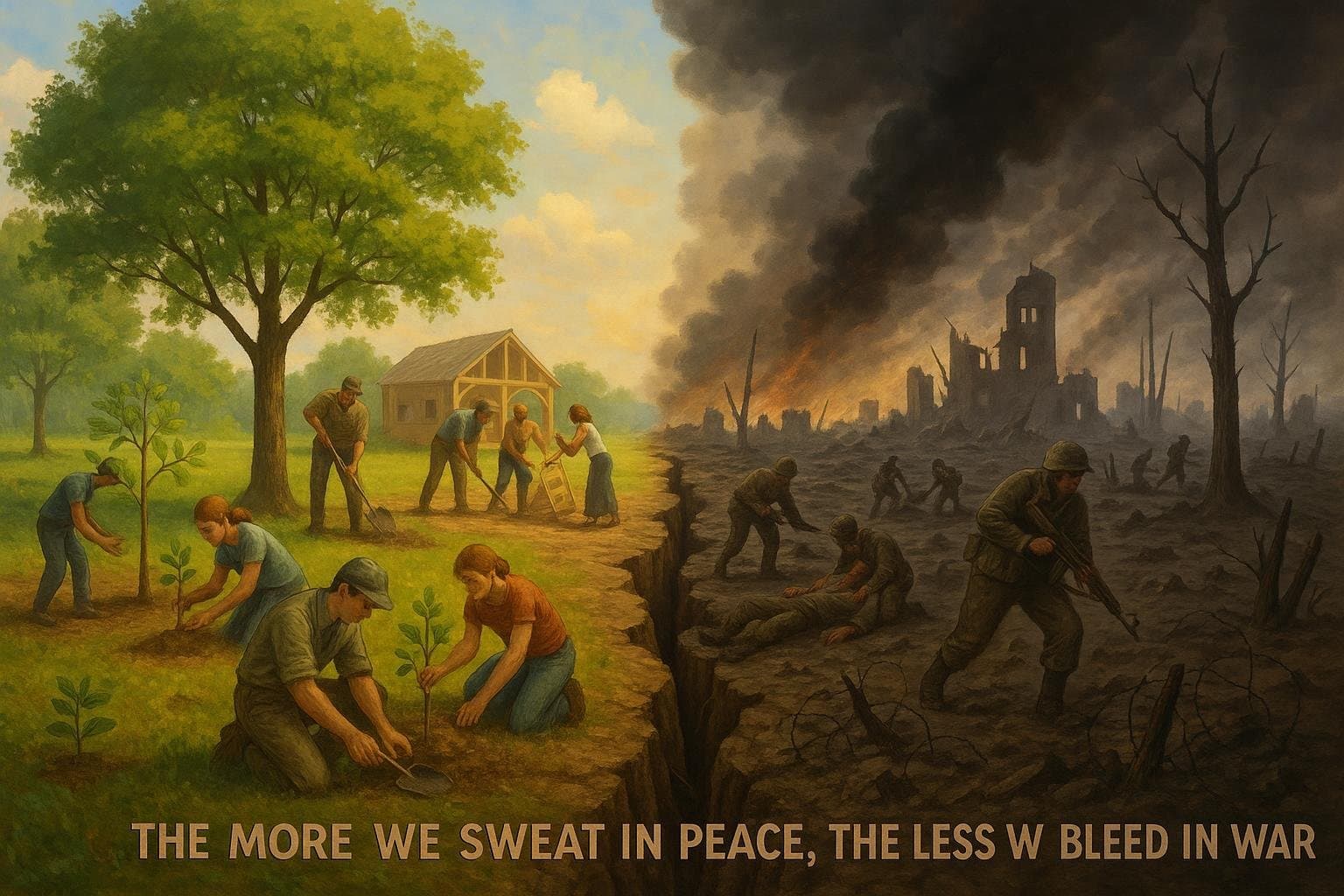Preparation in Peace: Safeguarding Against Future Conflict

The more we sweat in peace, the less we bleed in war. — Vijaya Lakshmi Pandit
—What lingers after this line?
One-minute reflection
Where does this idea show up in your life right now?
Understanding the Quote’s Wisdom
Vijaya Lakshmi Pandit’s adage encapsulates a timeless principle: diligent effort during peacetime serves as insurance against the devastations of war. She draws a parallel between metaphorical ‘sweat’—the hard work of preparation, training, and diplomacy—and the literal ‘blood’ spilt during conflict. In this way, the quote urges societies to invest seriously in peace-oriented efforts, reminding us that complacency today may lead to heavy losses tomorrow.
Historical Lessons in Preparation
History abounds with examples where rigorous peacetime training dramatically reduced casualties during conflict. For instance, prior to World War II, nations that prioritized disciplined military drills and strategic planning, like Britain’s early investment in radar technology, managed to withstand greater adversities with fewer losses. Conversely, lack of readiness has repeatedly increased wartime suffering, as seen in the disastrous opening months for poorly prepared states.
Application Beyond the Battlefield
While Pandit’s words evoke images of military preparation, their relevance extends to all aspects of governance and civil life. Effective disaster response, public health planning, and educational advancement rely on diligent effort before crises arise. For example, countries with robust pandemic preparedness plans fared substantially better during COVID-19, experiencing fewer fatalities and swifter recoveries—further evidence of the wisdom behind ‘sweating in peace’.
Diplomacy as Preventive Labor
Diplomatic engagement functions as another form of peaceful exertion. Through negotiation, alliance-building, and conflict resolution, nations can often address grievances before they escalate. The Oslo Accords of the 1990s, despite their limitations, exemplified how sustained talks might curb violence. Thus, diplomacy’s hard-earned compromises frequently save lives that would otherwise be lost to war.
Carrying Forward Pandit’s Legacy
Pandit’s legacy as a diplomat and activist underscores the enduring value of her counsel. In our world of persistent global tensions, her words implore leaders and citizens alike to invest energy into peace-building measures. By prioritizing cooperation, training, and preparedness, we honor the insight that proactive effort today secures a more stable and less bloody tomorrow—transforming sweat into the most valuable safeguard against future suffering.